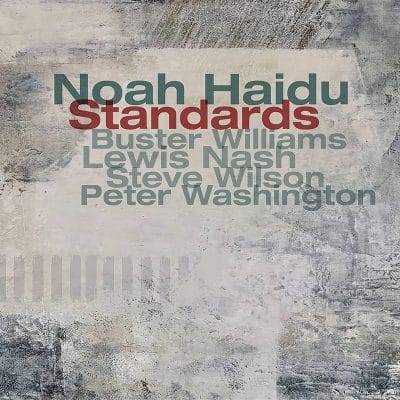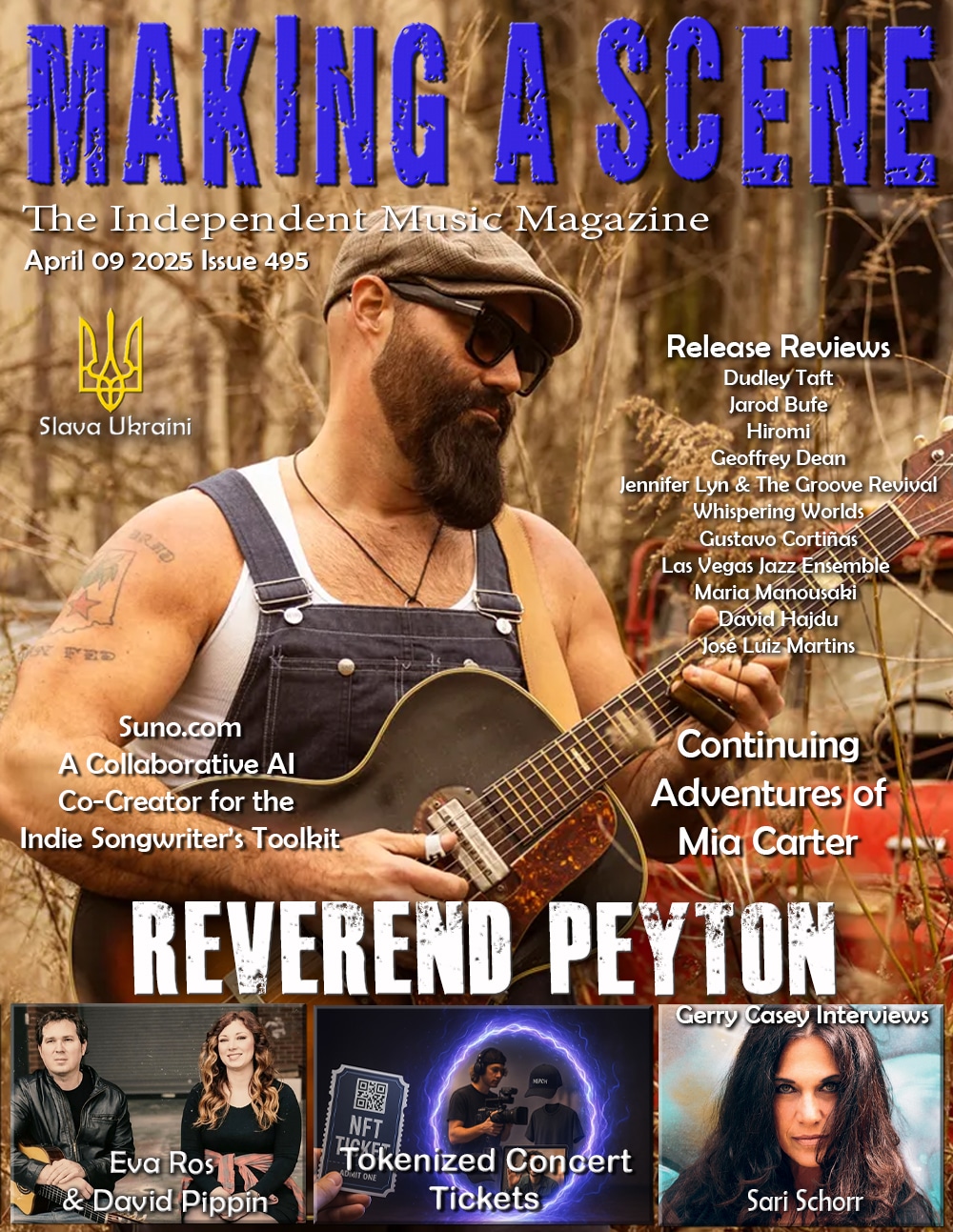Noah Haidu Standards
 Noah Haidu
Noah Haidu
Standards
Sunnyside
The iconic trio of Keith Jarrett, Gary Peacock, and Jack DeJohnette, known as the Standards Trio, established the template 40 years ago with their first of 21 albums on standards. Rising star Noah Haidu has now carried that legacy forward with an esteemed trio of his own featuring bassists Buster Williams and Peter Washington, drummer Lewis Nash and guest saxophonist Steve Wilson, who plays on select tracks. Standards is effectively the sequel to Haidu’s 2021 SLOWLY: Song for Keith Jarrett. Like Jarrett, Haidu started playing classical piano at a young age. Moving frequently as a result of his parents’ divorce, music became the one constant in his life. He became fascinated with blues, R&B and eventually jazz. Perhaps the most important inspiration for SLOWLY and Standards were the many Jarrett performances Haidu and his father were fortunate to attend including their final concert at the New Jersey Performing Arts Center, which he attended. Haidu remembers that at one point Jarrett joked with the audience: “Don’t try this at home.” Thinking back to that night in 2014 Haidu reflects, “I believe I subconsciously took that as a challenge. Not to follow in their footsteps, but to build on my own voice with the trio and these songs.”
Many of the tracks on Standards have been recorded by Jarrett’s trio with Peacock and DeJohnette. All are ‘standards’ except “Last Dance I” and “Last Dance II,” which Haidu named after a Jarrett recording and composed after that final concert in New Jersey. Haidu takes an interesting perspective though on this group of songs, namely that lost love is at the center of so many of them, citing songs such as ‘“Skylark,” “All the Way” and “I Thought About You.” He can personally relate due to his own recent breakups and the recent loss of his music-loving father.
Standards begins with “Old Folks” and “Just in Time,” both part of Jarrett/Peacock/ DeJohnnette’s repertoire. Haidu’s trademarks of soulful fluidity and natural melodic intuition are framed by Williams’ nimble bass lines and crisp touch. While the trio swings hard on “Just In Time,” a feature for Nash especially, they relax their swinging demeanor slightly for “A Beautiful Friendship,” where Williams’ bassline holds it together, allowing Haidu to roam freely in his bluesy solo. Their first ballad is “All the Way,” taken at a tantalizingly slow tempo, each in connected to the other so well that the piece moves as one entity as opposed to so many trio renderings where three different parts and approaches are disparate. That’s not the case on this session but you’ve likely heard enough piano trio recordings to concur with that observation.
Bassist Peter Washington (a member of Bill Charlap’s long running trio) steps in for the first time on “Someday My Prince Will Come,” a tune we most often associate with Miles Davis (who didn’t write it by the way). The trio’s forward momentum rests not only on Washington’s stellar bass playing but Haidu’s penchant for injecting bluesy tones into these pieces as he again does here. On “You and the Night and the Music,” saxophonist Steve Wilson (integral member of Maria Schneider’s Jazz Orchestra and Christian McBride’s Inside Straight quintet) joins the trio with his lyrical, crystalline alto tone and fluid, spiraling solo, inspiring an energetic turn from Haidu who then surrenders to Nash to take it out. The quartet’s second ballad is of more recent vintage, the late Wayne Shorter’s hauntingly beautiful rendition of “Ana Maria,” yet another that reflects the theme of loss. The piece was written for Shorter’s wife, who later passed away tragically with their niece Dalila on TWA flight 800. Add the composer to those family members, and appropriately the quartet plays with deep reverence, led by Wilson and Haidu.
Haidu goes it alone on “Skylark,” his right-hand ever so sensitive in delivering melancholic lines and his left even subtler with on the mark rhythm. Haidu breaks out of that dreary but sublime cloud feeling a need to strut soulfully on “I Thought About You.” Wilson returns for “Last Dance I” and “Last Dance II,” expressive 3/4 pieces, the first serving as an intro before both Wilson and Haidu launch into orbit, climaxing with repeated refrains and with cascades of rhythm from Nash over a repeated ensemble refrain.
While the inspiration may be Jarrett’s trio, there’s much more of Haidu’s blues and R&B influences shining through here as opposed to classical. He’s may have found his niche with this trio configuration, and these are players of the highest caliber leaning hard on emotion rather than simply technical prowess. We’re not necessarily expecting another twenty standards albums like their forbears, but they are likely good for at least a few more.
- Jim Hynes
Buy Us a Cup of Coffee!
Join the movement in supporting Making a Scene, the premier independent resource for both emerging musicians and the dedicated fans who champion them.
We showcase this vibrant community that celebrates the raw talent and creative spirit driving the music industry forward. From insightful articles and in-depth interviews to exclusive content and insider tips, Making a Scene empowers artists to thrive and fans to discover their next favorite sound.
Together, let’s amplify the voices of independent musicians and forge unforgettable connections through the power of music
Make a one-time donation
Make a monthly donation
Make a yearly donation
Buy us a cup of Coffee!
Or enter a custom amount
Your contribution is appreciated.
Your contribution is appreciated.
Your contribution is appreciated.
DonateDonate monthlyDonate yearlyYou can donate directly through Paypal!
Subscribe to Our Newsletter
Discover more from Making A Scene!
Subscribe to get the latest posts sent to your email.














































